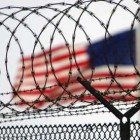
School-to-Jailhouse Pipeline Not Only in Mississippi
|
This story was produced in partnership with the Center for Public Integrity
Meridian is not alone under the DOJ magnifying glass. In a somewhat similar case in Tennessee, the DOJ says the Juvenile Court of Memphis and Shelby County has failed to inform children of the charges against them and of failing to make sure the children know what their legal rights are ahead of questioning. Like Meridian, the juvenile court is also accused of failing to hold timely hearings. There are varying definitions of a school-to-prison pipeline, said Jim Freeman, senior attorney at Advancement Project, a nonprofit legal action group that fights racial injustice. “How I like to define it,” Freeman said, “is the use of policies and practices that increase the likelihood that young people become incarcerated.”
That includes at-school arrests for minor behavioral incidents, as well as what he calls more indirect actions, like suspensions, expulsions or references to juvenile court or alternative schools.

